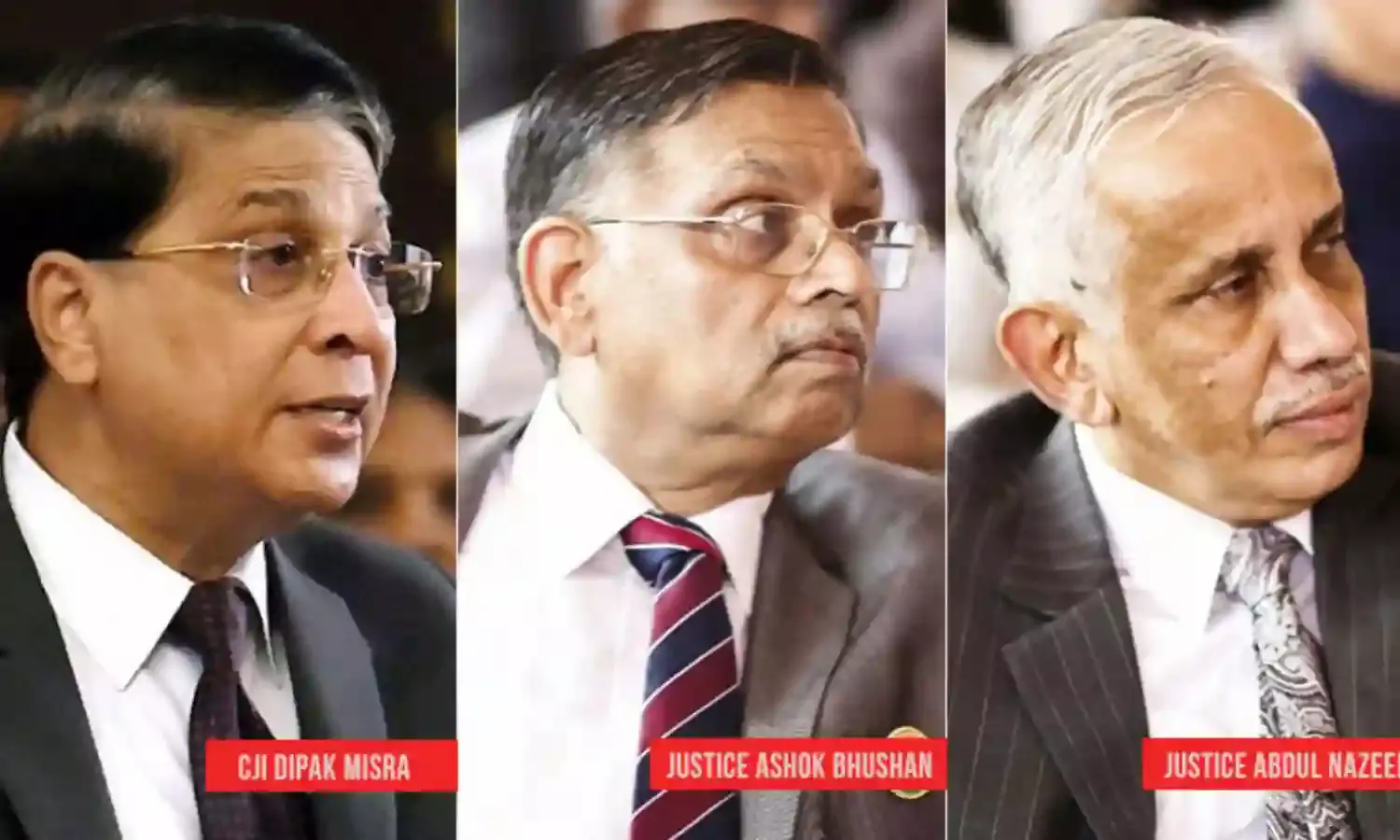SC Rejects Demand to Refer Ayodhya Case to a Larger Bench In A 2:1 Verdict
Hearing to begin from October 29.

NEW DELHI: A special bench comprising of Chief Justice Dipak Misra and Justices Ashok Bhushan & S. Abdul Nazeer today declined to refer the Ayodhya (Ram Janambhoomi-Babri Masjid) title dispute case to a larger constitutional bench as pleaded for by several Muslim groups.
In a 2:1 verdict, Justice Ashok Bhushan pronounced the judgement on behalf of Chief Justice Dipak Misra and himself.
He said, "We have to find the context in which five judges delivered 1994 verdict in Ismail Faruqui case that mosque is not integral to Islam. Law is not always logical at all. Faruqui judgement said every temple mosque church can be acquired. Mosque not being essential part of religion is made in a specific context of acquiring."
The statement made in 1994 is in the context of the issue whether it has immunity from acquisition.
Justice Bhushan added, “Observations in Ismail Faruqui judgment on mosques as not essential to religion is in the context of the acquisition of mosque and made with respect to the facts of that case. The statement in Faruqui case was in the limited context of immunity claimed by the petitioners for the mosque from acquisition, it need not be read broadly to mean mosque can never be essential to practise of Islam”.
Justice Abdul Nazeer presented a dissenting view. He said, “What is essential to religion as laid down in Ismail Faruqui was arrived at without comprehensive examination and it needs to be re-examined in detail. Questionable observations in Ismail Faruqui have affected the judgement of Allahabad High Court in 2010.”
The Supreme Court will begin hearing the Ayodhya case from October 29, 2018 to decide the suit on merit on the title disputes. No reference to a larger Bench will be done.
In 1994 Dr. M Ismail Faruqui vs. Union of India case, Supreme Court considered the question of acquisition of religious place by the State. A temple, a church or a mosque, etc. are essentially immovable properties and subject to protection under Article 25 and 26.
It said every immovable property is liable to be acquired.
Supreme Court also noted , “While offer of prayer or worship is a religious practice, its offering at every location where such prayers can be offered would not be an essential or integral part of such religious practice unless the place has a particular significance for that religion so as to form an essential or integral part.” It was interpreted that the Supreme Court adjudged that offering namaz (prayer) at a mosque was not integral to Islam, unless that mosque had any particular significance in Islam.
Muslim groups argued before a special bench of Chief Justice Misra and Justices Bhushan and Abdul Nazeer that the observation of the apex court in the 1994 verdict needed to be reconsidered by a five-judge bench. As the hearings progressed, Muslim appellants also pressed on the importance of the place of a mosque in Islam and that the practice of offering prayers inside a mosque should be first decided by a five-judge bench.
They also said that this question should be answered before the court goes into the main title dispute on Babri Masjid - Ram Janmbhhomi.
As per Muslim litigants, verdict of 1994 plays a big role in the 2010 verdict of Allahabad High Court on disputed land in Ayodhya. The Allahabad High Court divided the land into three parts. Allahabad High Court split the land between Nirmohi Akhara, Hindu and Muslim parties, though the main part was given to Hindus.
In its order, Allahabad High Court observed that that none of the parties was able to prove conclusive title of the disputed property; but the court passed its order on the basis of who was in possession of the land. Although the court ordered the division of the land but it accepted the belief that the site of the Babri mosque was the birthplace of Lord Ram.



